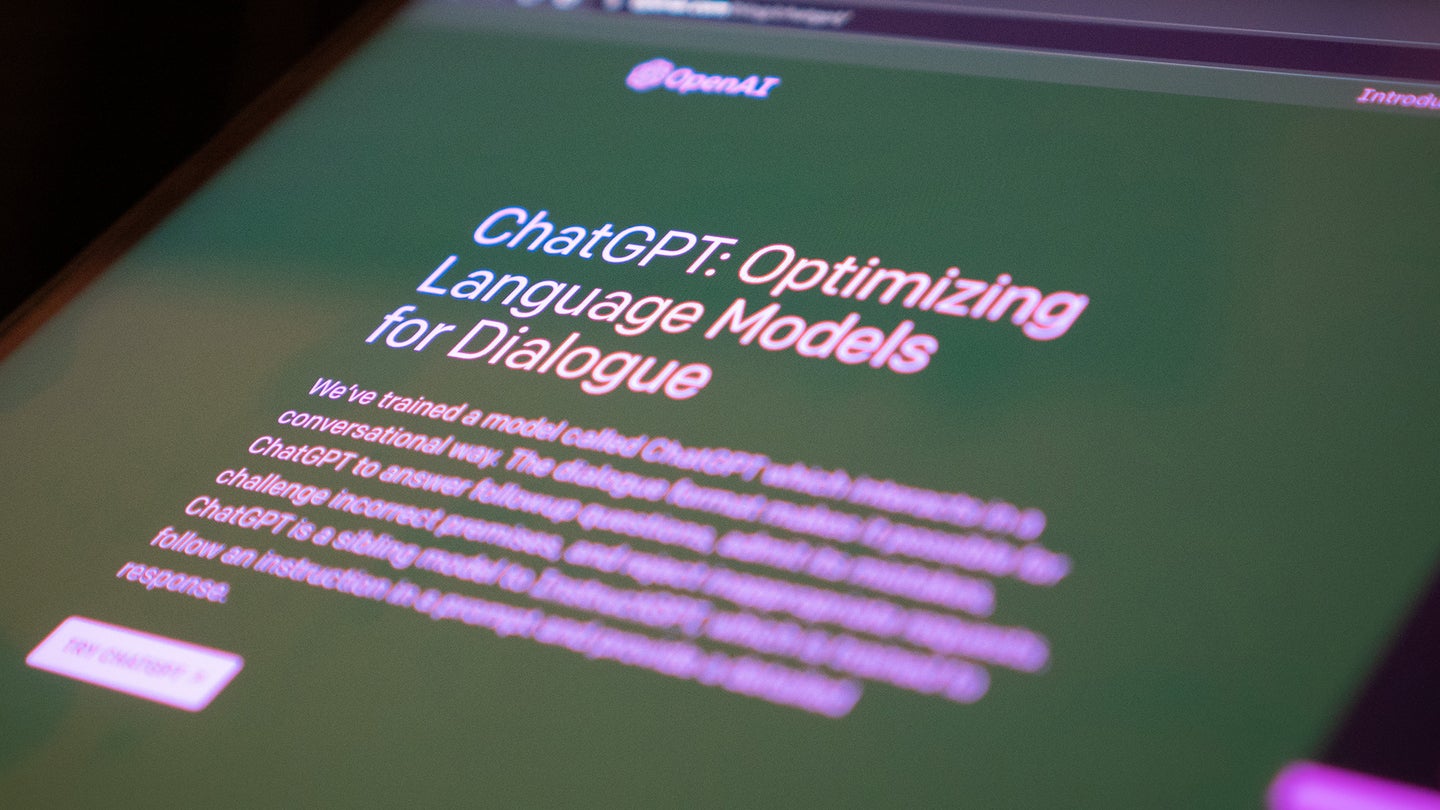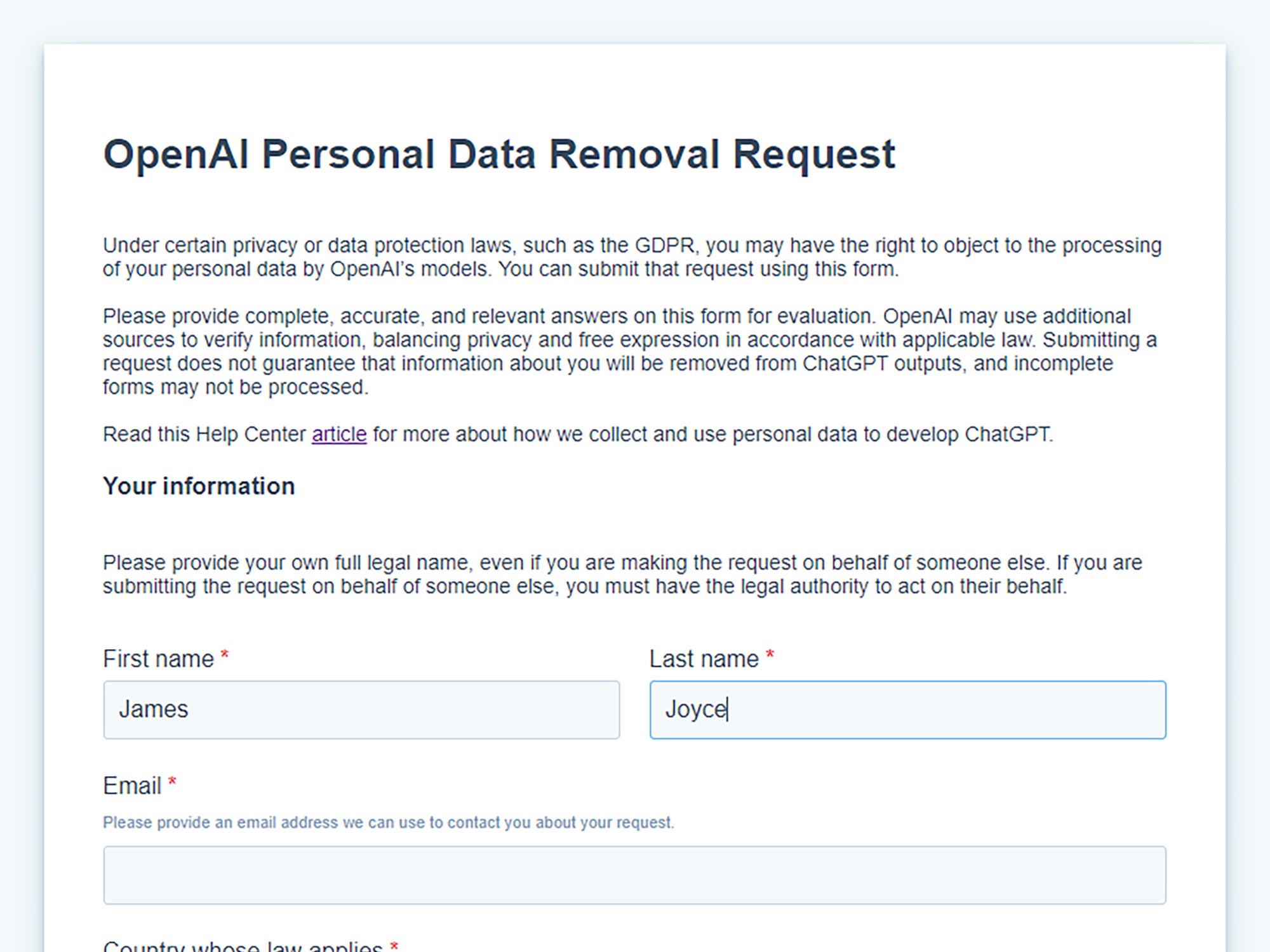
It’s a sign of the times that most new technology brings with it new privacy and security issues, and OpenAI’s ChatGPT is no exception. The text generator is truly impressive (at least to some), but it also raises questions about how it collects and processes our data.
ChatGPT’s developers trained the large language model on vast amounts of publicly available text on the web. But the chatbot also uses your conversations with it to learn, so if you want to protect your privacy, you’ll need to know what your options are.
Activate incognito mode on ChatGPT
By default, OpenAI will use the messages you send to ChatGPT to “train and improve” its models. But users have the power to stop this from happening by using the platforms’ incognito mode. To activate it, open ChatGPT in your browser, click your username on the left, go to Settings, and next to Data Controls click Show. Once there, turn off the Chat History & Training toggle switch.
From that point on, every time you close the browser tab, your conversation log with ChatGPT will disappear from your account. But that doesn’t mean it’s entirely gone—behind the scenes OpenAI hangs on to your chat history for 30 days to “monitor for abuse” before permanently deleting it.
Back on the Data Controls menu, there’s an Export data option. This won’t affect how OpenAI uses your information or delete what it has already collected, but it gives you a better idea of what OpenAI has on you. It might include chats you haven’t erased and the feedback you’ve given to ChatGPT’s responses.
If there’s anything in there you’re not comfortable with, you can manually wipe your chat history. Back on the ChatGPT interface, click your username and then Clear conversations to get rid of your entire log all at once, or click the trash can icon next to any specific chat to wipe it out. ChatGPT won’t be able to use deleted conversations for training, but depending on how long your chat history has been there, the chatbot might have gotten to it before you did. To prevent that from happening in the future, or just in case someone gets access to your computer and wants to take a peek at your conversations, it’s a good idea to tidy your chat log up every now and again.
Finally, if you no longer want to talk to ChatGPT, you always have the option to delete your account, which you can do from the Data Controls panel.
Be careful with what you tell ChatGPT
ChatGPT may output text in a natural and life-like way, but don’t go trusting it as a friend or advisor. The platform’s official support documentation tells users not to share any sensitive information with the chatbot—and that’s not least because it’s difficult to be sure exactly how your data will be used and analyzed later.
The chatbot’s privacy policy says OpenAI logs data such as your conversations and the features you engage with, and may share “aggregated information” such as user statistics with third parties. As a response to legal requests from law enforcement, for example, the company may also share users’ personal information, such as email addresses and location data, with “affiliates.” But the document is vague and doesn’t specify who these affiliates might be exactly.

It’s a standard privacy policy, but the rule is clearly the same as with most platforms online: the less you’re sharing about yourself, the better. That won’t only protect you from questionable privacy practices OpenAI might have in the future, but also from bugs and hacks. For example, a recent ChatGPT outage resulted in people seeing titles from other active user’s chat history.
If there’s public information about you on the internet, ChatGPT might be able to tell other users about you—and if that’s not scary enough, think about what could happen if it gets things wrong. If you want to correct inaccuracies or just stop ChatGPT from learning about you, you can fill out this form or get in touch with OpenAI via dsar@openai.com. You can learn more about the data ChatGPT is trained on in the platform’s support page.
Be extra cautious with ChatGPT third-party apps
We’ve covered what you need to know when using the ChatGPT platform, but that’s not the only place you’ll run into the chatbot. This tool is popping up all over the place as OpenAI is allowing third-party apps and plug-ins to build on top of it. And if you’re using any of them, then there’s a whole new set of privacy and security issues you’ll need to think about.
When it comes to using an app or browser extension built on top of ChatGPT, you’ll need to apply the same caution you would with any other third party tool: check the permissions it requires, read through the privacy policy and terms and conditions, and find out about any associated costs, whether it’s subscription fees or in-app payments.
As soon as something becomes as popular as ChatGPT, scammers and hackers also want in on it, so we’d also recommend researching the background of the developer behind any ChatGPT tool you use.
The most trustworthy apps will have privacy and security settings of their own you can configure. When it comes to the ChatGPT-powered Bing AI chatbot run by Microsoft, for example, click the three horizontal lines in the top right corner of the Bing interface, then choose Search history to see the chats that you’ve had with the AI and to clear these results if needed.
